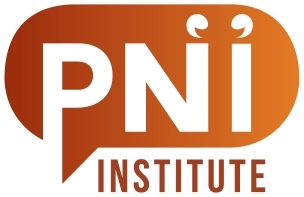If there is one subject in this series of calls on PNI applications that can spark a controversy, it is the forthcoming one on Knowledge Management and Organisational Learning. The KM notion is probably in the top 3 of most abused terms in the recent history of management theory and practice. It has lost most of its meaning, just as happened to sustainability, impact assessment and complexity. In this blog I try to make a modest start to polishing it up a bit. I hope it helps to continue that process in our call next Wednesday.
Knowledge
What is knowledge? It is a very old question. The Wikipedia page on knowledge starts with:
Knowledge is a familiarity, awareness, or understanding of someone or something, such as facts, information, descriptions, or skills, which is acquired through experience or education by perceiving, discovering, or learning.
That is a wide category. And it is my impression that in recent decades the width of the category has caused lots of trouble around Knowledge and around Knowledge Management in particular. We have seen hundreds of technology vendors plugging their IT systems (for data, information, documents, drawings, process-descriptions, etc as KM systems). I seem to remember there was a time even SAP staged its ERP systems as KM systems. Hmmm, something must have gone terribly wrong with K(M).
Plato and friends
A few paragraph later, a completely other take on knowledge is presented. Not a definitive one, but more focussed on what it takes for something to be knowledge. That is a debate that has been going on for centuries:
The definition of knowledge is a matter of ongoing debate among philosophers in the field of epistemology. The classical definition, described but not ultimately endorsed by Plato,[5] specifies that a statement must meet three criteria in order to be considered knowledge: it must be justified, true, and believed.
Next the page starts to describe the debate philosophers like Wittgenstein have had over the centuries, and of course there is no final answer. There probably never will be. Still, these criteria from Plato … justified, true, and believed …. help me (us?) a whole lot more than the …. familiarity, awareness, or understanding …. from the first definition.
The reason I’m more inclined to embrace the second description – despite the debate – is that it relates to human qualities. Something is knowledge when it is justified (by a person or group), true (again only people can judge that as knowledge is not a logical thing from mathematics), and believed (so knowledge is more related to will-power than to facts).
That really helps here as this means that humans and knowledge are inseparable. K is related to wetware, so KM can’t be a tech system, it is a bio-system, an ecology.
Knowledge, narratives and learning
Now things speed up. If knowledge is connected to humans (brain and body) and to networks of humans (belief-systems, warm data, etc), it is logical that not dry information, but rather narratives (stories we tell, hear, and work with) are integral to knowledge and to the ways people and organisations “manage” the creation, flow, use/thinkering-with and discarding of knowledge. People are defined by the use of narrative. There are even doubts arising in psychiatry as to whether people can live without narratives. People learn from each other by exchanging narratives.
Let me put forward a final suggestion: in order to avoid future mistakes that equate KM with (IT) technology, it seems a good ideal to connect knowledge to learning and narrative. So I propose a new acronym to replace KM:
MHL = Management of Human Learning
This suggestion reminds me of a long series of changes in the name of what used to be called document management system (DM). When digital documents arrived it became EDM with E for electronic. Then archives joined in (Records Management) and for a while we ended up with EDRM. For some in the industry (especially insurance companies) imaging (scanning) was the main application so some talked about IMS system and those used the acronym EIDRM. Almost a word itself :-).
Then the software vendors claimed their stake and an S was added: EDRMS or EIDRMS. Suddenly document management was no longer a profession. It had become a system. The Human Activity System DM had turned into an IT-based system. DM had been de-humanized.
Next the K hype kicked in and in a few years we saw KMS being hyped until some year Gartner intervened and decided that “I” should stand for Integrated, and IKM systems were born. At that time Communities of Practices had also merged in as a soft technology. It was hilarious.
So to avoid all that, I propose not to expand KM first to Human Narrative Insighting, Sensemaking, Knowledge, and Learning, Management Systems (HNISKLMS) but go straight to MHL. That will not only save us all lots of typos, it will avoid another de-humanisation process. It will also pose stories as integral to human knowledge and learning.
Don’t get me wrong here. There is nothing wrong with technology augmenting humans. But reversing the equation, as some now try in AI/Machine Learning, is a dead end. Yes, that is a prediction. For once.


Couldn’t agree more! Thank you for building awareness that reducing human input on vital decisions by replacing human judgement with algorithms is literally the root cause of “de-humanization.” Normal math will never replicate the non-linear irrational “math” of FAITH. Designing systems that fail to sustain FAITH tend to turn opportunities for kindness into unnecessary expenses. When systems disregard stories that demonstrate the non-financial rewards of irrational, costly acts like integrity, integrity gives way to CYA behaviors. Building a culture that supports two bottom lines: profit as well as moral integrity supports irrational acts of faith – undeserved second chances, empathy, generosity for it’s own sake, and personal sacrifice – that keep work sustainably humane. It seems to me that building systems that fail to sustain faith in humanity (in spite of daily experiences that might indicate this faith is irrational) is what dehumanizes work. Honestly I don’t see any other way to build a faith sustaining system other than intentionally recirculating moral stories that acknowldge the financial downsides of acting with humanity and support it anyway.